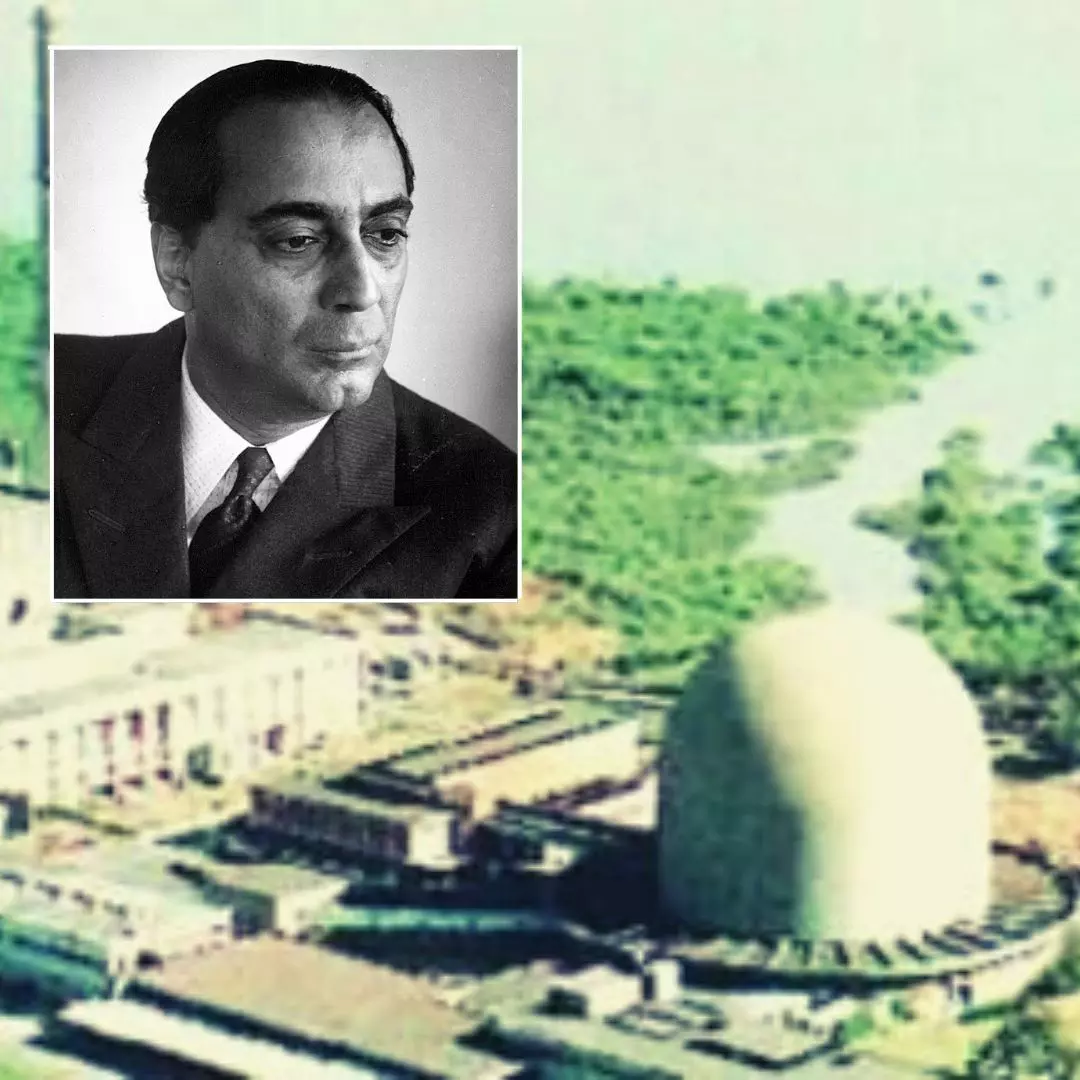
Image Credits: Indian Express and Wikipedia
First Steps Toward Self-Reliance! 63 Years Ago Today HJ Bhabha Announced India's Capacity To Make Atomic Bombs
Writer: Laxmi Mohan Kumar
She is an aspiring journalist in the process of learning and unlearning many things. Always up for discussions on everything from popular culture to politics.
India, 16 Dec 2022 9:07 AM GMT
Editor : Jayali Wavhal |
She writes about gender issues, human interest, and environment.
Creatives : Laxmi Mohan Kumar
She is an aspiring journalist in the process of learning and unlearning many things. Always up for discussions on everything from popular culture to politics.
It was on this day in history that the father of Indian nuclear programme, Dr HJ Bhabha, announced that India can make atomic bombs without depending on other countries. This was among the first few steps toward India's independence in the nuclear realm.
It was on December 16, 1959, that Dr HJ Bhabha, the father of the Indian nuclear programme, announced at a meeting of the Informal Consultative Committee of Parliament that India could make atomic bombs without depending on resources or aid from foreign countries. This was considered a huge stepping stone towards India's self-reliance and establishing itself as a nuclear power.
According to historians, Bhabha's announcement had come up as a response to questions raised by parliament members regarding building atomic weapons. It was then that Bhabha made the statement and informed that India now stands in a position to manufacture nuclear bombs and weapons without depending on external help.
Building A Self-Reliant Nation
HJ Bhabha, the Indian nuclear physicist and head of the Atomic Energy Establishment, was among the key individuals who worked to secure the country's long-term energy independence. He was the brains behind India's three-stage nuclear power programme. He proposed the country develop its energy resources through uranium and thorium reserves found in the monazite sands of South Indian coastal regions.
In November 1954, he presented the three-stage plan for national development at the conference on "Development of Atomic Energy for Peaceful Purposes," and four years later, in 1958, the Indian government formally adopted the three-stage plan. However, it wasn't until December 16, 1959, that Bhabha announced to the political body that India had finally become self-reliant in building its atomic energy and weapons.
Replying to the MP's question on the development of atomic energy, Bhabha stated that India was almost self-sufficient in the technical aspect of manufacturing nuclear weapons, in the sense that it was keeping abreast of all the developments in this sphere in the US and the USSR. He emphasised that the country can now independently manufacture bombs and weapons of destruction "if we mean to," according to an article by the Hindustan Times. He was particular about the idea that India's self-reliance also comes with a responsibility and that the country would use atomic energy only for peaceful and constructive purposes.
During the meeting, he addressed several other technical aspects, such as the quantities of uranium to be used in the manufacture of Atomic bombs, and it is said that references to the nature of the bombs dropped on Hiroshima and Nagasaki was also studied at the time. The consultative committee also discussed a deadline for an atomic power station along the lines of the developments.
"No First Use" Policy
Bhabha was instrumental in laying the country's foundation in nuclear power, and his announcement on India's independence in building atomic weapons came along as a strong statement, within and across borders. However, at the time of the announcement, many experts believed that the situation would also eventually lead to a power asymmetry and security concerns between India, China, and Pakistan.
Bhabha himself had aggressively promoted the need for nuclear weapons for a country's defence but also was against India manufacturing bombs unless absolutely necessary. He suggested that the production of an atomic reactor should instead be used to lessen India's misery and poverty, according to Wikipedia.
He also led the first United Nations (UN) Conference that discussed the Peaceful Uses of Atomic Energy in Geneva in 1955. He promoted nuclear energy control and prohibition of atomic bombs worldwide but believed that the capacity to create the same would strengthen a country's security and defence. The government continues to follow this idea with its "no first use" nuclear policy and had also voluntarily destroyed its entire stock of chemical weapons in 2009, becoming one among the seven countries to have done so.
 All section
All section














